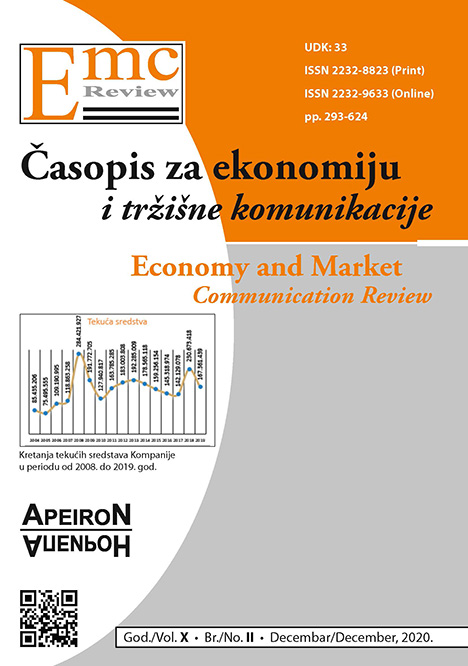PREDICTING CUSTOMER LOYALTY LEVELS OF PROFESSIONAL CUSTOMERS: THE CASE OF BALKANS
DOI:
https://doi.org/10.7251/EMC2002319PAbstract
The paper presents the results of customer satisfaction survey in the auto spare parts industry through the presented analyses conducted in period from 2015 to 2018 on a sample of 3269 professional customers of a company that operates in the region of Balkans: Bosnia and Herzegovina (BIH), Republic North Macedonia (RNM) and Serbia (SRB). The Categorical Regression Analysis (CATREG) was used as a method of predicting the level of customer loyalty by combining variables from the survey-questionnaire with regard to the relationship between the sales staff and the characteristics of the products themselves. The study identifies that for BIH the range of goods, delivery and the price and quality ratio have the greatest impact on customer loyalty, for RNM the assortment of goods, delivery and manner of resolving complaints, while in Serbia the delivery of goods and the resolution of complaints, have the greatest importance in anticipating the level of loyalty of customers.
